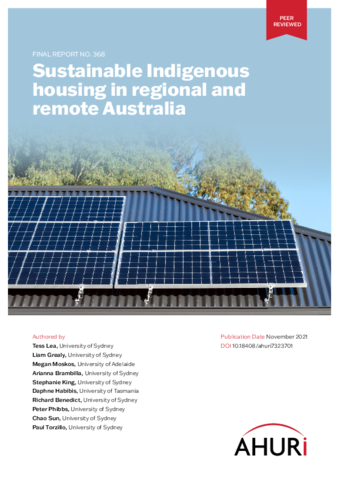This research explores what is required for sustainable Indigenous housing in regional and remote Australia to deliver positive health and wellbeing outcomes for householders, so that housing stock is maintained at high levels over time and is designed with climate change challenges in mind.
Current regional and remote Indigenous housing stock is unable to provide consistently healthy and comfortable indoor environments. Operating and maintenance costs are three times greater for remote housing than in capital cities, so developing strategies to reduce these costs is a key goal. The adoption of life-cycle costing (LCC) frameworks offer potential to reduce expensive responsive repair work while guaranteeing amenity to householders. An LCC framework requires thinking of the lifespan and benefits of a structure within which savings might be derived by strategic investments.
This report finds attention to climate change is not yet a feature of Indigenous housing and infrastructure agreements, with inadequate funding and attention paid to climate preparedness in new builds, refurbishments and retrofit programs. This is despite the impact of extreme temperature on both householder wellbeing and health hardware.


